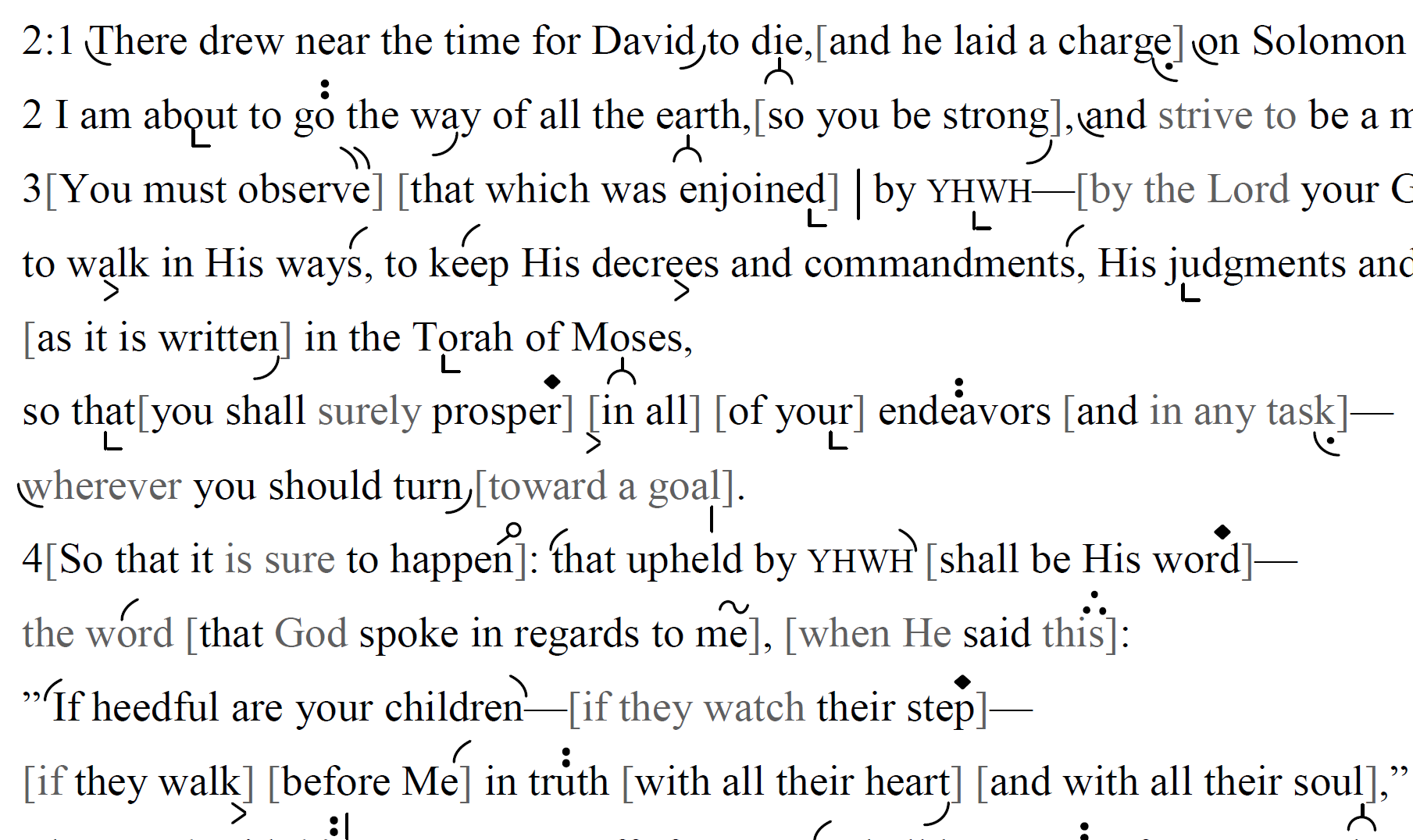DOWNLOAD:
PDF | ODT (sans Hebrew)
PDF | ODT (with Hebrew)
This is an English translation of Genesis 47:28-50:26, the Torah reading for Parashat Vayeḥi, transtropilized. (Transtropilation is the term coined by Len Fellman to describe the process of translating from cantillated Hebrew, as closely as possible, “word for word and trōp for trōp”, with the main purpose being to aid a person with minimal Hebrew training in following the Hebrew leyning word for word.) This translation is based on Everett Fox’s The Five Books of Moses (Schocken 1997) with modifications based on the following translations: Aryeh Kaplan’s The Living Torah, the Stone Edition Tanach, the JPS 1985 Tanakh, the New KJV, The Jerusalem Bible (1966), and the Genesis commentaries by Robert Alter and by Victor Hamilton.
Source


“📜 Torah Reading for Parashat Vayeḥi (Genesis 47:28-50:26): Chantable English translation with trōp, by Len Fellman” is shared through the Open Siddur Project with a Creative Commons Attribution-ShareAlike 4.0 International copyleft license.










Comments, Corrections, and Queries